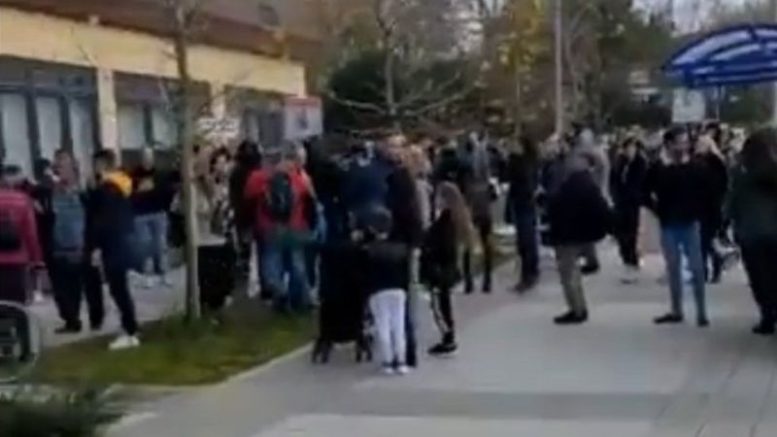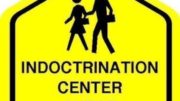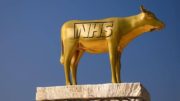Basildon in Essex is typical of many of Britain’s small towns and especially of the New Towns that were the result of the centralised planning fetish that gripped government after World War II. Although originally a village that had been around since the time of the Domesday Book, it had grown in the 19th and early 20th centuries because of the coming of the railway. It had haphazard development until 1949 when the Labour government declared it a ‘New Town’ and it morphed into a dormitory town with many residents commuting to London although there is some local industry based around data management, tractor construction and warehousing and distribution.
It is a place that I have known well in the past as I have had relatives there and visited the area quite a lot as a child. My paternal grandmother used to work for the local tobacco factory making Black Cat cigarettes and another relative of hers worked for what used to be one of the centres of British photographic material manufacture, the Ilford Film Works.
Basildon is an aspirational working class town with people moving there to get on and buy property that was cheaper than other places and to become part of the property owning section of the working class. At one point you could buy a house far cheaper and get a more modern house in Basildon than you could get in say for example East Ham or Walthamstow in East London.
Because of the nature of Basildon, inhabited as it is by the aspirational working classes in large part, it is not a place that one would associate with protest. It doesn’t have the left wing student element of for example Bristol, nor is it a place where there is a mono-industrial culture that bound people together as was the case with the former mining towns. If you wanted to find a place that could reasonably be described as a British ‘Anytown’ then Basildon would probably be quite high on any list of candidates that you may draw up.
Knowing what I know about Basildon and how it is not a centre of protest and agitation as is the case with some of Britain’s major conurbations like London, Liverpool, Manchester and elsewhere, I was surprised to see local people standing up to the lockdown nonsense and protesting about it. You come to expect demonstrations, not just about lockdown but on various other matters, in big cities and areas where there are contributory factors such as particular industries or student leftists, but it’s not something that you expect to see in Basildon. This is a town where I would least have expected to see people rising up like this and because it is so unusual to see this, I believe the anti-lockdown protest in Basildon should be seen as nationally significant. Protests in areas where protest is not usually expected to happen is an indication that something is badly wrong as is the fact that people who would not normally turn out for demonstrations, do so. It is also a sign that the MSM narrative around the covid situation which is that ‘we are all in this together’ is being seen as bullshit by those who are suffering under this ludicrous lockdown.
The MSM, as can be expected, has come out with extreme hostility against the Basildon anti-lockdown protestors, something that can be seen clearly from the BBC news article below which relies heavily on information supplied to them by Essex Police but with very little input from those who took part in the protest. This very one sided treatment of this story by the BBC should raise suspicions that the BBC and Essex Police are not telling the whole truth about this matter. Here’s some of the very one sided piece about this protest from the BBC with as usual the original article in italics and my comments in plain text.
The BBC said:
Nine people were arrested and a number of police officers injured at an anti-lockdown protest in Basildon.
Essex Police said it was called to a “large, unauthorised gathering” on Saturday afternoon and was unable to persuade people to disperse.
Sounds like this crowd was pretty angry and determined. There’s a lot of people in the area with jobs, homes and families and therefore a lot to lose, the very people one would expect to disperse when told. The fact that they did not is significant and could indicate that people in the area are now seriously pissed off with the covid cockup. Note well how the BBC leads this piece with ‘a number’ of police injured in order to try to create both sympathy for the police and to try to encourage their readers to be on the side of the police rather than the protestors. So far this is the sort of ‘journalism’ that those of us who are old enough to remember the Cold War recall coming form Soviet press organs like Pravda.
The BBC added:
Police said there would be patrols in the town on Sunday to stop a repeat.
Looks to me like the police are worried that the people of Basildon are not as meek as they may have once been considered. The police may be worried that if these protests take off either in Basildon again or other places in Essex such as Chelmsford or Colchester, which is increasingly likely to happen, then they will not have enough manpower to control them hence their threats, whines and the diverting of officers to these Sunday patrols. Essex Police have only 2900 officers, not all of them front line, to police an area that is 1400 square miles, is either rural or semi-rural in large part and contains a population of 1.8 million or one officer for every 620 inhabitants. The police there could be worried that they may be facing a situation where there are more angry people on the streets than there are police officers to contain them, this is a situation that no senior police officer wants to be in and is also what may lay behind the refusal of both the Met and Police Scotland to enforce the Govt’s draconian and nasty Christmas dinner number limits.
The BBC continued:
Supt Bonnie Moore said: “Those who took part have risked their health and those of their loved ones through he spread of the virus.
“Having to deal with clear and blatant breaches of the regulations means having to take our officers away from dealing with other incidents and affects our ability to respond to other forms of crime.”
Sniff, sniff. Do you smell bullshit because I do. First of all the scaremongering from Supt Moore about the virus, a virus that remarkably few people seem to be dying of at present. Then there is the whine from Supt Moore that the protest affected Essex Police’s ability to deal with other crimes. The virus scaremongering from the police is just that, scaremongering and as for the complaint by them that they are being diverted from ordinary crime then all I have to say is that Essex Police does not have the greatest of reputations in this area.
A quick search of the Ambush Predator blog using the search term ‘Essex Police’ supplied me with a plethora of stories of how Essex Police have failed to tackle real crime over many years, have fobbed off victims of crime with excuses when those with ‘protected characteristics’ have been suspected of committing said crime, along with stories about incompetence and alleged corruption in Essex Police. This is a force that has little to write home about when it comes to police honesty, probity, impartiality and efficiency.
It is only a good halfway down the BBC article that the BBC deigns to tell its readers exactly why this protest happens and even then it’s just one short paragraph. The rest of the article was used up with the whines of Supt Moore and the local council leader and does not to me seem like either a fair or representative story of what happened during the demonstration.
A demonstration in a small town may seem like small potatoes to some, but as I said earlier,it is where this has happened that is important. A demonstration in a place that in normal times is one where there demonstrations are to be expected is just a demonstration, but a demonstration in somewhere like Basildon and at this time, looks like it could be something both much bigger than it seems and something to take note of.





